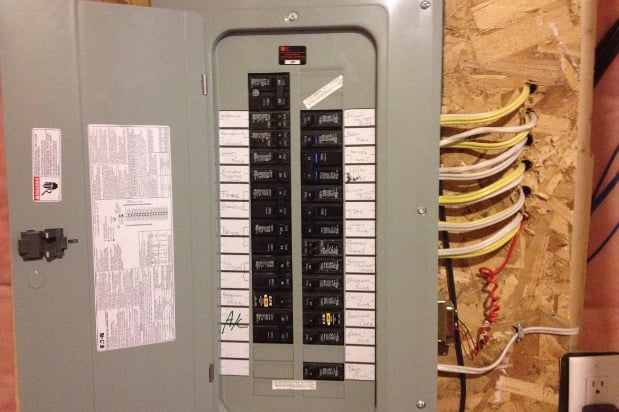
Electrical safety is an important part of responsible homeownership. It requires that you always follow the proper procedures when working with electrical outlets and wiring. Remember, electricity can be deadly. If you’re not experienced in this work, it’s always best to call in a licensed electrician to perform repairs or improvements. That being said, here’s some basic tips to keep you as safe as possible.
Electrical Safety for the DIYer
As has already been mentioned, the most important aspect of doing any electrical work on your home is that you understand the potential dangers you might be facing. Electricity can cause serious injury and death if not handled properly and improper wiring and installation work can lead to serious house fires. Again, if you’re not sure about your ability to work with electricity, call in an electrician. If you’ve got some experience under your belt, however, here are a few basic rules you should always be sure to follow.
Never Work on Live Wires!
Whether you’re wiring a new addition or just changing out an outlet, never do any electrical work unless you’ve flipped the proper breaker at the circuit box. Sounds like common sense, but you’d be surprised how many homeowners fail to follow this very basic, and potentially life saving, advice.
Install Safety Measures
If you’re doing electrical work anyway, think about installing safety products such as GFCI outlets and AFCI’s in your home. GFCI outlets automatically cut power if a ground fault occurs, meaning they will save your life if you somehow end up on the receiving end of an electric current. AFCI’s are another safety measure that you install into the wiring itself. They detect arc faults that are a common cause of electrical fires, and break the circuit before fire breaks out.
Ready to start your Electrical Project?
Find ProsReplace Faulty Outlets and Switches
One of the most straightforward electrical improvements you can make is replacing old outlets and switches. Loose outlets and old switches can lead to an outlet fire and electric shock. Replacing them with new units is an easy and effective way to prevent more serious problems. If you’ve already experienced an outlet fire, sparks coming from an outlet, or smoking outlets, shut off the power to the outlet and call an electrician immediately to check if the outlet fire caused more significant damage that needs to be dealt with.
Electrical Safety and a Flipped Breaker
Flipped breakers and blown fuses are nothing to take lightly. Breakers flip and fuses blow because an electrical circuit in your home has been overloaded. Overloaded circuits get hot, and that heat causes fire. In other words, circuit breakers are there for your safety. If your circuit breaker is cutting off electricity to a portion of your home, first think about whether you’ve added any new appliances or other draws that would explain the extra electrical demands being placed on the circuit. You might be able to solve the problem by simply unplugging your new microwave, for example, and moving it to another circuit that isn’t experiencing such high demand. If you can’t think of an obvious cause, however, call in an electrician immediately. There’s likely a problem with the circuit’s wiring, and that’s a problem you want to address as soon as possible.
Children and Electrical Safety
Children are too often the victims of electrical accidents, so it’s important that you talk to them about safety and follow proper procedures to protect them from electrical hazards. Never let them play around outlets, and warn them against the dangerous combination of electricity and water. From a prevention standpoint, install child safety plugs in unused outlets, including extension cords and power strips, and never keep electrical appliances such as hair dryers and radios near sinks or bathtubs.
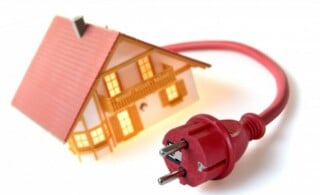 Staying Safe During a Home Power Outage
Staying Safe During a Home Power Outage 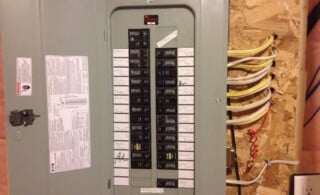 Electrical Hazards
Electrical Hazards 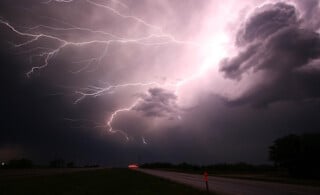 Lightning Protection
Lightning Protection 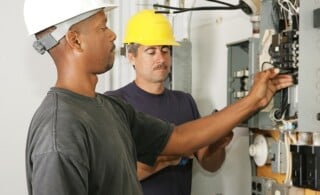 Tips for Finding & Hiring an Electrician
Tips for Finding & Hiring an Electrician 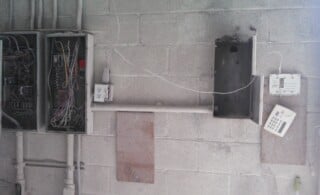 Electrical Box Regulations – Is There a Fire Hazard in Your Walls?
Electrical Box Regulations – Is There a Fire Hazard in Your Walls? 

OLD HOUSE REWIRING: Over the last century Many homes were wired by DIY -owners, who
located wires and switches and outlets wherever convenient, often recklessly according to modern building codes. Such houses are technically unsuitable for 2019, and need a professional electrician who is at least willing to disclose his/her ability to handle rewiring = upgrading. A good contractor should be able to disclose their special capability for “OLD HOUSE” repair. Without that experience any repair costs are subject to question .